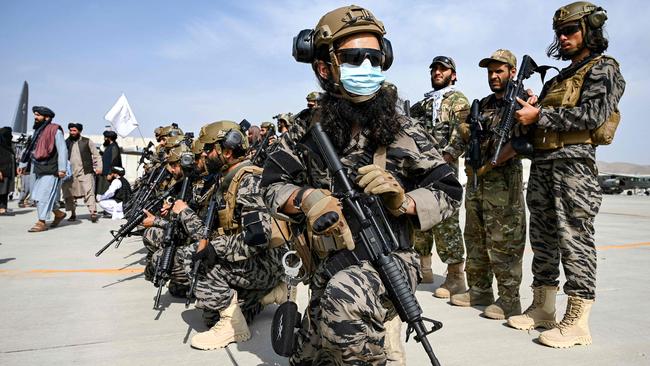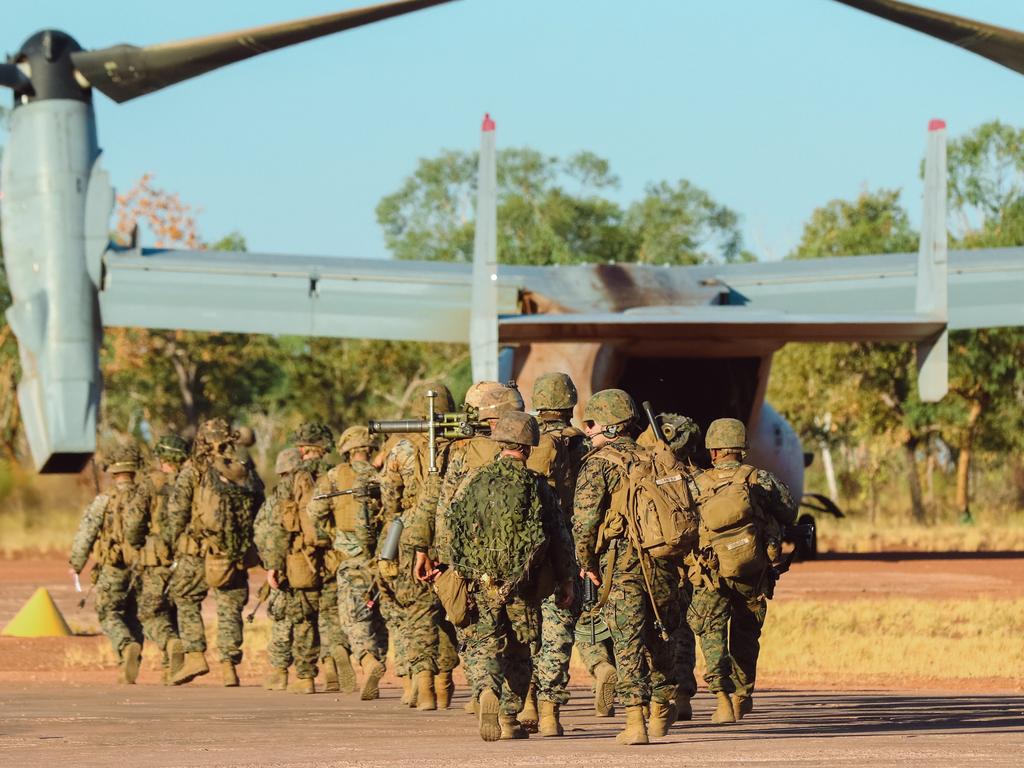Afghanistan: This was a wise decision: Biden defends withdrawal as darkness falls on 35 million
In an address to the nation, Joe Biden says Afghanistan exit was in the national interest and blames Donald Trump for negotiating a bad deal with the Taliban.
Joe Biden on Tuesday defended his decision to pull troops out of Afghanistan, saying it was in the US national interest.
“We no longer had a clear purpose in an open-ended mission in Afghanistan,” he said a day after the final withdrawal, adding that 90 percent of Americans in the country who wanted to leave were able to depart.
“This is the right decision. A wise decision. And the best decision for America,” he said
Mr. Biden addressed the nation from the White House, after the final plane carrying American troops departed Afghanistan, formally marking the end of the nation’s longest war. The president said his administration would continue to work to help remaining Americans exit the country and pushed back against criticism of the withdrawal.
“Leaving August 31 is not due to an arbitrary deadline,” Mr. Biden said. “It was designed to save American lives.”
He blamed former President Donald Trump for negotiating a bad deal with the Taliban that left his administration no choice but to act as they did.
“That was the choice, the real choice between leaving or escalating,” he said in opening remarks. “I was not going to extend this forever war.”
Darkness falls on 35 million
The West’s two-decade involvement in Afghanistan ended a minute from midnight on Monday when the last US soldiers lifted off from Kabul airport and the rattle of Taliban gunfire rang out over a city hunkered in fear.
The final airlift drew a line under a desperate and chaotic evacuation that brought 123,000 people to safety but left 35 million Afghans at the mercy of Islamists determined to once again impose an extremist theocracy on the country. As the last US Air Force C-17 cargo plane left the ground, jubilant Taliban fighters carrying US-financed weapons streamed into military hangars to inspect more spoils of war: dozens of armoured personnel carriers and helicopters that US soldiers reportedly disabled before departure, along with the airport’s missile defence system.
“The last American occupier withdrew from (Kabul airport) at 12 o’clock and our country gained its full independence, praise and gratitude to God,” Taliban spokesman Zabihullah Mujahid tweeted to his 373,200 followers.
Hours later, he stood on the same airfield – for two weeks a scene of desperation and then carnage – to announce a “historic moment” of victory.
“We do not have any doubt that the Islamic Emirate of Afghanistan is a free and sovereign nation,” Mujahid said. “America was defeated, they could not achieve their targets through military operations and, on behalf of my nation, we want to have good relations with the rest of the world.”

The new Taliban regime would “protect our freedom, independence and Islamic values”, he said, adding that the civilian terminal would reopen within days. Those with visas could leave, he added.
Hundreds of thousands, perhaps millions, still hope to do so, though there will be little on-ground assistance from Western nations.
Australia was the first to close its embassy in May, after US President Joe Biden made the disastrous decision to set a date for withdrawal without demanding a permanent ceasefire. At the time, Prime Minister Scott Morrison said the closure was an “interim measure”.
Now 20 years after US forces drove the Taliban from power and routed al-Qa’ida from Afghanistan, America too has ended its diplomatic presence there, raising questions over how it intends to “lead with our diplomacy”, as Secretary of State Antony Blinken promised on Tuesday.
The US embassy’s relocation to neighbouring Doha — which for years has hosted the Taliban’s political office — leaves little scope for Australian diplomats to return to Afghanistan.
Mr Morrison said on Tuesday the government was committed to bringing people from Afghanistan to Australia under the humanitarian program for “many years”, and would work with international agencies, Five Eyes and coalition partners to do so.
“We are very keen to meet at least the 3000 that we would like to see taken into Australia under our humanitarian program this year, and more. I would like to see more,” he said.
“That won’t end this year … we will bring people out from Afghanistan for many years to come”, though it was unclear if, or for how long, the Taliban would honour its assurances of unhindered passage for those wishing to leave, he added.

Foreign Minister Marise Payne said Australia was now “focused on next steps”, which she discussed on Tuesday with Mr Blinken.
“We continue to call on the Taliban to allow safe freedom of movement for those wishing to leave Afghanistan,” she said.
Hundreds of foreign nationals and tens of thousands of Afghans, at risk because of their work with foreign forces, the Afghan administration or Western governments, are still seeking avenues out of the country.
Australian forces evacuated 4100 people before their departure last Thursday, hours ahead of a suicide blast outside the airport killed some 200 people, including 13 US soldiers.
The attack was claimed by ISIS-Khorasan, a Taliban rival and local affiliate of the Islamic State terror group, which also fired rockets into the airport early on Monday.
A US drone strike on Sunday on a vehicle suspected to be laden with explosives and being driven by ISIS terrorists killed another 10 civilians.
Those deaths add to a terrible toll: more than 170,000 lives lost over 20 years, including almost 50,000 Afghan civilians, 66,000 Afghan troops, 42 Australians and 2400 US troops.
Canberra will not say how many people it has left behind, though among those with humanitarian visa applications pending are women activists and a female photojournalist who has worked with The Australian.
She almost made it to the airport on Thursday only to narrowly escape the blast.
On Tuesday she sent this message from Kabul: “Life has never been so meaningless for me.”
Additional reporting: Greg Brown
With AFP, Dow Jones








To join the conversation, please log in. Don't have an account? Register
Join the conversation, you are commenting as Logout